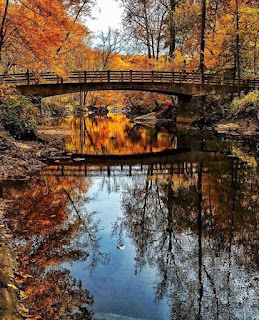Image Source: Pinterest
Let’s start by noting the difference between climate and weather. As described in the Ecology 101 presentation, climate is the weather conditions in an area over an extended period of time. Weather, on the other hand, is the short-term changes in the atmosphere. Daily observations of weather over an extended period allow scientists to quantify long-term conditions and analyze an area's overall climate.
Two useful resources for understanding climate and weather conditions anywhere in the United States are the National Oceanic and Atmosphere Administration’s (NOAA) climate data website and national weather service page. The climate data website provides free and open access to the National Climate Data Center’s archive of global historic weather and climate data. The climate data online search tool allows you to search for data based on the dataset you would like to work with, and then hone in on a specific location and date range. Once you have selected your data, it is added to your cart. You can collect as much data as you need and then when you are finished simply, “check out” and all the data will be emailed to you. For this exercise, I chose to look at the summary of annual/seasonal normals (from 1981-2010) for the Washington, DC area. (Climate normals are three-decade averages of climatological variables.) I was very impressed by the level of detail of the available data. The document I received assessed climatological variables including temperature, precipitation, snowfall, snow depth, and wind; and organized it into hourly, daily, monthly, seasonal, and annual time spans. If you prefer a more visual method, the website also offers an array of maps which display all the same information.
 |
| The climate data online search tool |
 |
| A more visual representation of NOAA's climate data |
NOAA’s national weather service page also offers a wealth of information, particularly through their interactive maps. You can view maps showing real-time severe weather warnings, sky cover, precipitation, and wind speeds, as well as a map showing the highest and lowest temperature recordings over the last 24 hours. If you are a weather or climate geek, these websites will keep you entertained for hours.
In looking at the climate and weather of Rock Creek Park, I discovered a very useful website published by NatureServe and the National Park Service. It details the climate and weather of the park, and provides an excellent interactive map detailing the natural communities, ecological systems, trails, natural highlights, historic sites, restrooms, recreational facilities, and more, across the entirety of the park.
Rock Creek Park is located in the Mid-Atlantic region of the US, about 30 miles inland from the Chesapeake Bay. Therefore it is influenced by both continental and coastal weather systems, and has a temperate seasonal climate. The area experiences all four seasons, with generally mild temperatures, although the summers can be quite humid. Average low temperatures in the winter are around 30 degrees Fahrenheit, and high temperatures are usually in the upper 80s in the summer. With an average precipitation of 44 inches annually, the forest ecosystem thrives (NatureServe & National Park Service, n.d.).
Although Rock Creek Park does not typically experience severe weather events such as tornados or hurricanes, strong thunderstorms can cause flooding and uproot trees. Unfortunately, climate change is starting to show effects on the park as well. Temperatures in the DC area are on average higher than they have been in the past, with more frequent heat waves. Precipitation is concentrated into fewer events, which therefore increases the frequency of both drought as well as flooding. The heightened intensity of coastal storms is also likely to have an effect on the park since it is not far from the coast(NatureServe & National Park Service, n.d.).
Sources:
NatureServe, & National Park Service. (n.d.). Explore Natural Communities: Rock Creek Park. Retrieved July 9, 2020, from https://www.explorenaturalcommunities.org/parks-places/rock-creek-park/natural-history/physical-setting/climate

Comments
Post a Comment